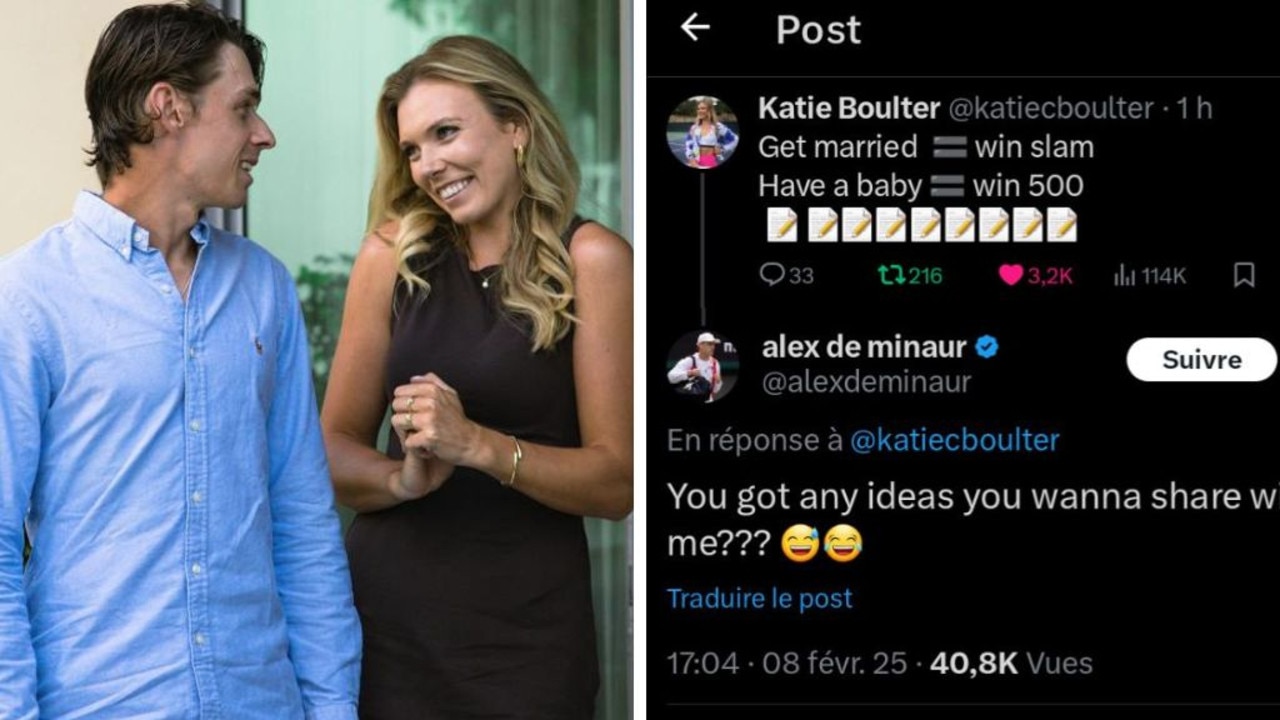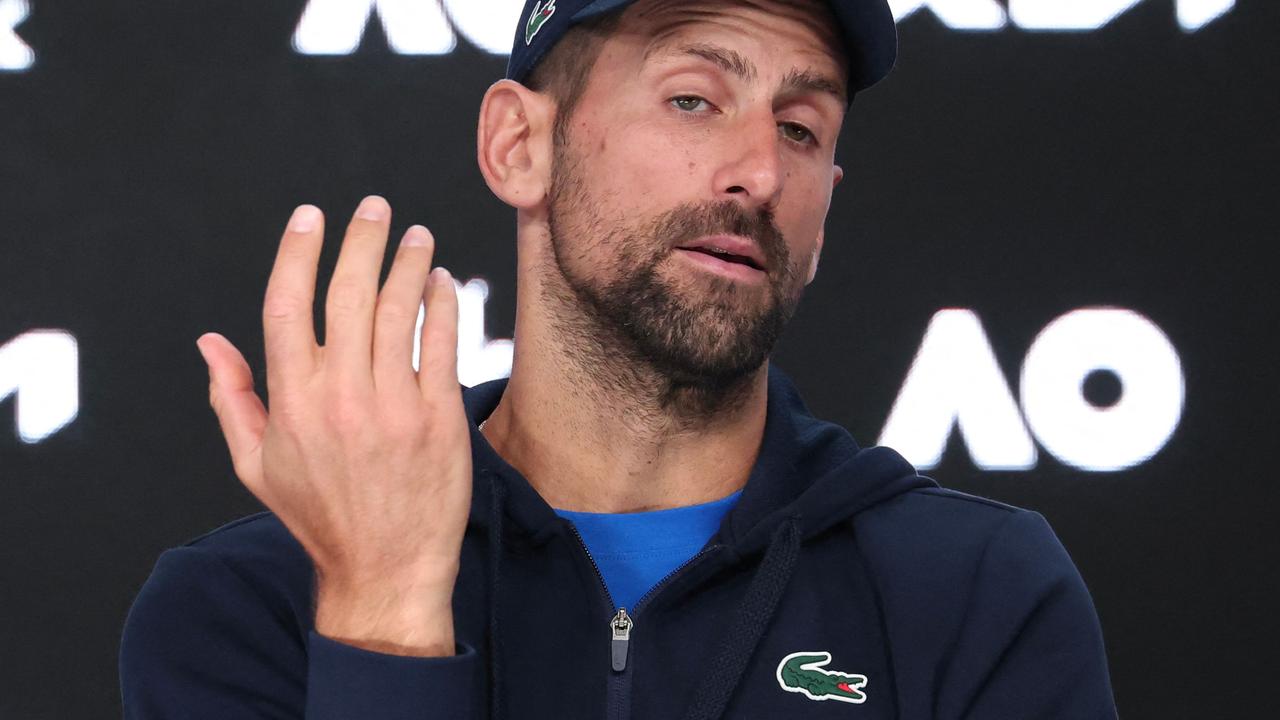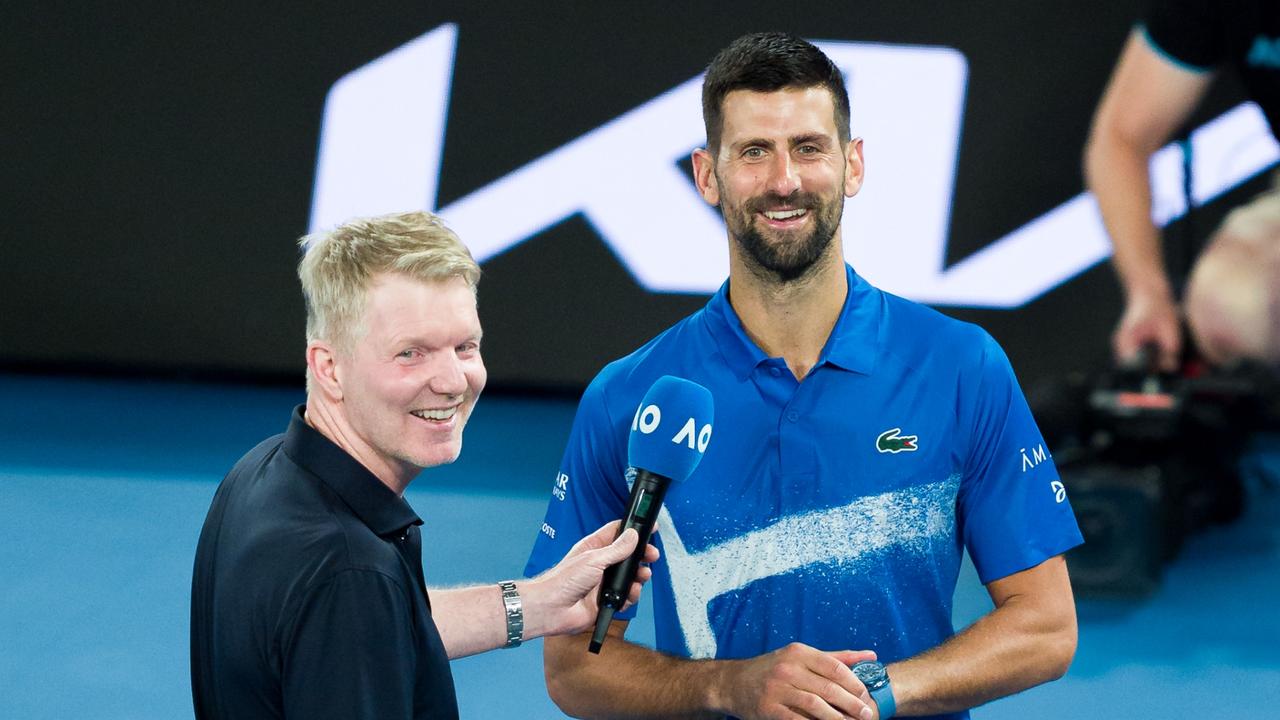Disability advocate has one problem with Dylan Alcott’s speech
One of Australia’s leading disability advocates has written about the part of Dylan Alcott’s Australian of the Year speech that made him “cringe”.
Dylan Alcott’s Australian of the Year speech has received near-unanimous praise after the 31-year-old was honoured with the award on Tuesday night.
In his speech, the world’s best wheelchair tennis player described how much he loves his disability.
“It is the best thing that ever happened to me. It really is,” Alcott told the audience in Canberra.
“I love the person that I am and the life I get to live and I’m the luckiest guy in this country, easily.”
The three time Paralympic gold medallist in wheelchair tennis and basketball said he felt “ridiculous” accepting the award compared with the contributions of so many others.
“To everybody here tonight, congratulations on what you are doing,” he said.
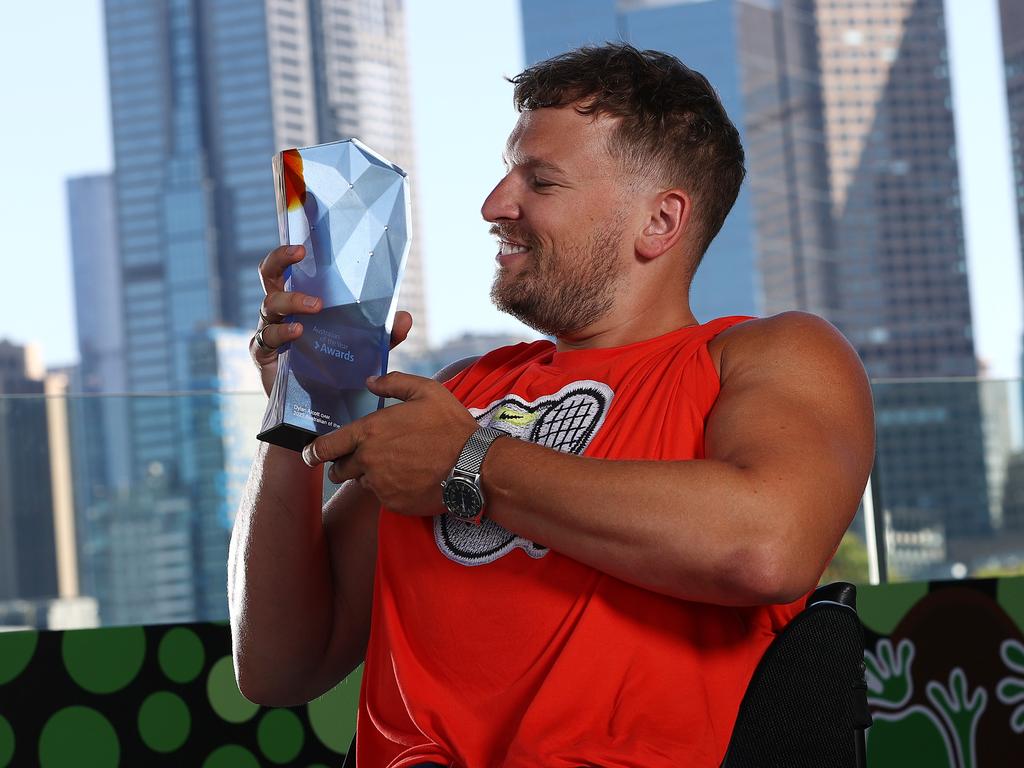
“To our frontline workers, our nurses, doctors, people running our vaccine clinics, our ambos, our firefighters you deserve this way more than a guy who hits tennis balls and likes talking.”
There is no doubt Alcott is a deserving winner, but not everybody loved his speech.
Dr George Taleporos, Chairperson Victorian Disability Advisory Council, wrote on LinkedIn on Australia Day how he was “thrilled” for Alcott but felt uncomfortable about one aspect of his speech.
“When Dylan Alcott was announced as Australian of the year last night, I got all the good feels,” Dr Taleporos wrote.
“I was thrilled to see another disabled Australian honoured in this way (he wasn’t the first, his predecessor also had a disability, albeit invisible).
“I was moved by his speech and I felt hopeful that, as a result, national attention would be drawn towards the important issues affecting people with disabilities – NDIS, discrimination, unemployment, poverty and social isolation to name just a few.
“Dylan is an amazing athlete, an entrepreneur and a great public speaker. He deserves this – no doubt about it!
The single best thing to come from this year will be if the wider community knew more stories than Dylans. The #disabled community is diverse. We will gain inspiration from one story. We will gain understanding and respect from many. @drgeorgethecrip story should be one of those. https://t.co/kzKx2xMFPN
— Geoff Trappett (@InclusionMoves) January 26, 2022
“Dylan’s story is a delicious blend of inspiration and all the good feels. But forgive me, it’s been hardly 24 hours since he was awarded the accolade and I’m already feeling a little bit cringe listening to the interviews, about how much he loves his disability and I am a little worried about what might become of all this in 12 months time.
“So I’m getting on the front foot and making a small request to the people of Australia in this year of Dylan Alcott.
“Please don’t judge me and other disabled people for not being as “in love” with our disabilities as Dylan is.”
Dr Taleporos wrote that Dylan often describes how he grew to love his disability after once hating it.
“His narrative is one that I have heard shared by many disabled people over the years. Especially amongst disability activists as we discovered that our problems lay in the obstacles placed before us by society rather than being inherent to our disability or impairment.
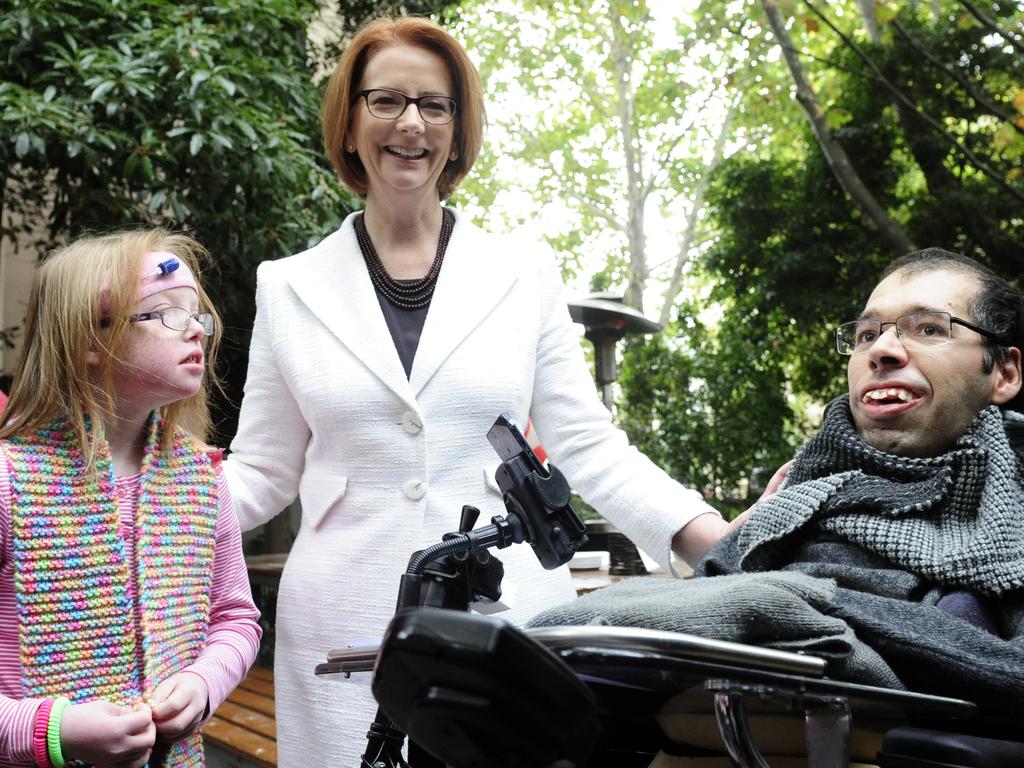
“It is a very important narrative that needs to be heard because it challenges the prevailing social narrative that disability is a tragedy and that in turn our lives must be miserable.
“While I recognise that a lot of the discrimination and injustices that I face are societal. I hate the fact that I have a genetic condition that causes severe muscle wasting and that over the years it has slowly crippled me, to where the only movement I have remaining is a wriggle in my thumbs.
“Does that make me less evolved in my disability journey? Does it mean that I am yet to reach my ultimate destiny of fully embracing and celebrating my disability? Some may presume so.”
He wrote that he does not “want sympathy”, but instead for people to “understand that we can’t all ‘love our disability’.
“For me, there’s really not a lot to love. I hate it and always will.
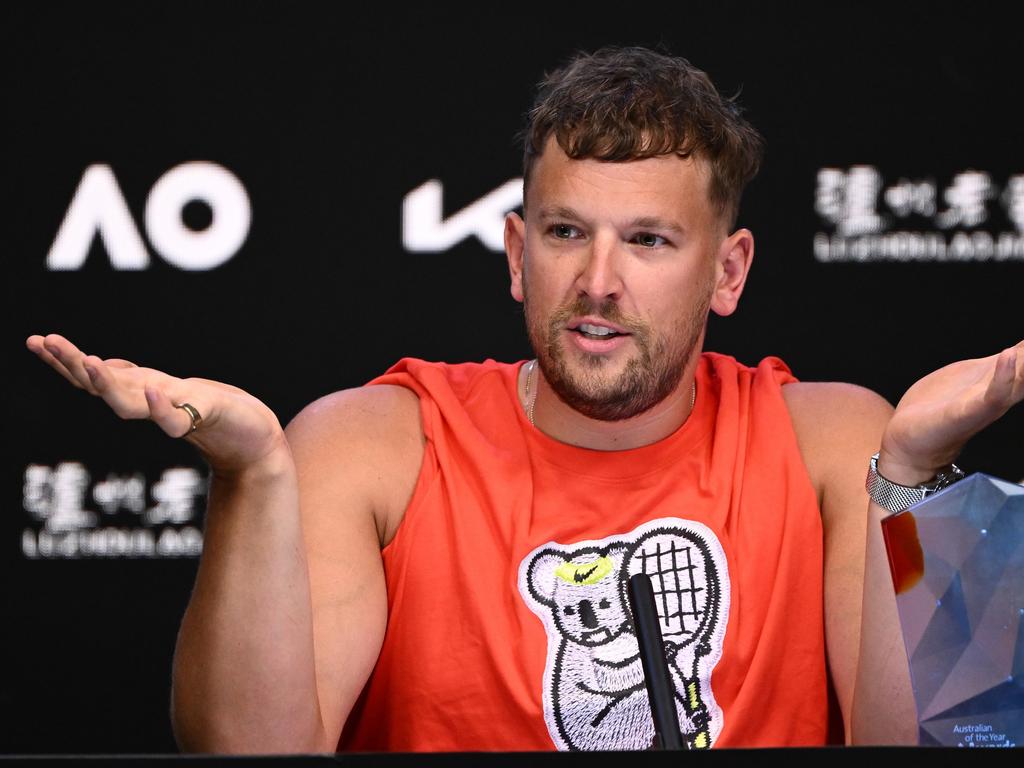
“Hating my disability doesn’t mean that I hate my life. I love my life and I feel proud of what I have achieved and of the work that I do. I feel proud of and love the disability community that I belong to.”
Alcott, who was born with a tumour wrapped around his spinal cord, has credited sport for saving his life.
“I’ve known nothing but having a disability. And if I’m honest, I cannot tell you how much I used to hate myself,” Alcott said.
“I hated being different and I didn’t want to be here anymore. Whenever I turned on the TV, I never saw anybody like me. And whenever I did it was a road safety ad where someone drink drives, has a car accident, and the next scene is someone like me in tears because their life was over.”
In 2017, he founded the Dylan Alcott Foundation to provide scholarships and grant funding to marginalised Australians with a disability.
He also founded AbilityFest, the nation’s first and only fully accessible music festival.
— with NCA NewsWire
Originally published as Disability advocate has one problem with Dylan Alcott’s speech

